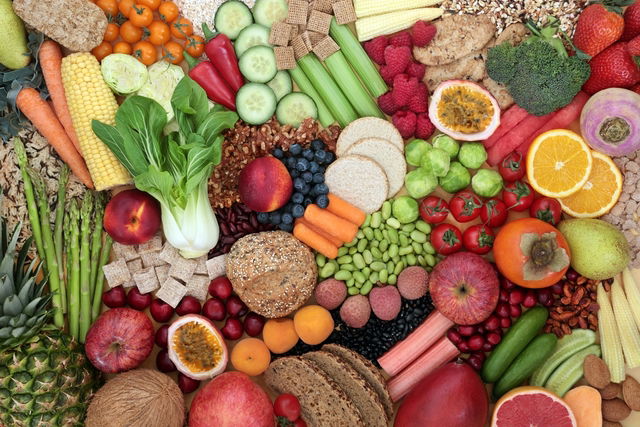A diet after gallbladder removal surgery is made-up of foods that are low in fat. You should avoid foods like red meat, bacon, sausage and fried foods in general, as these foods are harder to digest and can cause symptoms like nausea, pain and diarrhea. Instead, you should opt for fresh fruits and vegetables and whole grains.
The gallbladder is an organ that is located on the right upper abdomen, just beneath the liver. Its purpose is to store bile, which is a fluid that helps with breaking down the fat from food. Gallbladder removal can be indicated to relieve pain from gallstones.
Over time, the body will adjust to the gallbladder removal and you can gradually return to your original diet, being sure to eat fatty foods in moderation.

Recommended food
You are advised to consume foods that help to prevent nausea, abdominal pain and diarrhea following gallbladder removal surgery. Some examples include:
- Lean protein, like fish, skinless chicken, eggs, tofu and turkey
- Fresh fruits, like strawberry, papaya, orange, watermelon, pear and apples
- Fresh vegetables, like tomatoes, cabbage, arugula and carrots
- Whole grains, like oats, whole wheat rice, whole wheat bread and whole wheat pasta
- Low fat dairy, like skim milk, low fat yogurt and white cheeses (ricotta and cottage cheese)
- Legumes, like lentils, beans chickpeas, and lupini beans
It is also important to reduce the amount of food eaten at each meal, and instead spread your food over 5 to 6 meals throughout the day. After surgery, you should gradually increase the amount of food you eat, and slowly reintroduce fiber and whole grains to prevent excess gas and intestinal cramps.
If you have persistent diarrhea, you should prioritize foods with lower fiber content, like white rice, chicken and boiled vegetables, all lightly seasoned.
Gallbladder removal meal plan
The following table shows a sample meal plan for the period following gallbladder removal:
This meal plan is just an example, and can vary depending on your general health status, age and preferences. Therefore, you should see a registered dietitian to develop a customized meal plan that fits your needs.
In the first days following surgery, you should opt for easy-to-digest foods like boiled vegetables, peeled fruits, vegetable soup, potato or carrot purees, as all of these foods can prevent excessive gas and intestinal cramping.
As your digestion starts yo improve, you can reintroduce foods that are higher in fiber, like fruit with the peel, raw vegetables, whole grains, and healthy fats, like chia seeds, flaxseeds, chestnuts, peanuts, and olive oil.
Foods to avoid after gallbladder surgery
After gallbladder removal surgery, it is important to avoid foods with high fat content, like red meats, bacon, liver, gizzards, sausage, prosciutto, and high-fat dairy. Other foods to avoid include chocolate, avocado, coconut, peanuts, ice cream, cakes, cookies, pizza and fried food.
You are also advised to avoid spicy seasoning, like pepper, curry, paprika, cinnamon and ginger, as these can irritate the stomach and lead to vomiting, stomach pain or diarrhea.
Alcoholic and caffeine-heavy drinks (like coffee, black tea and green tea) should also be avoided, as these can irritate the stomach lining and lead to diarrhea.
Digestion after gallbladder removal
Your body needs a recovery period of about 3 to 6 weeks to recover after gallbladder removal surgery. During this time, the body relearns how to digest food that is rich in fat and fiber. You should be aware of the food that causes gas, intestinal cramps and diarrhea, as these will require more time to reintroduce into your diet.
It is noted that many patients lose weight following surgery due to diet changes, as post-op diets often need to be more balanced and lower in fat.
